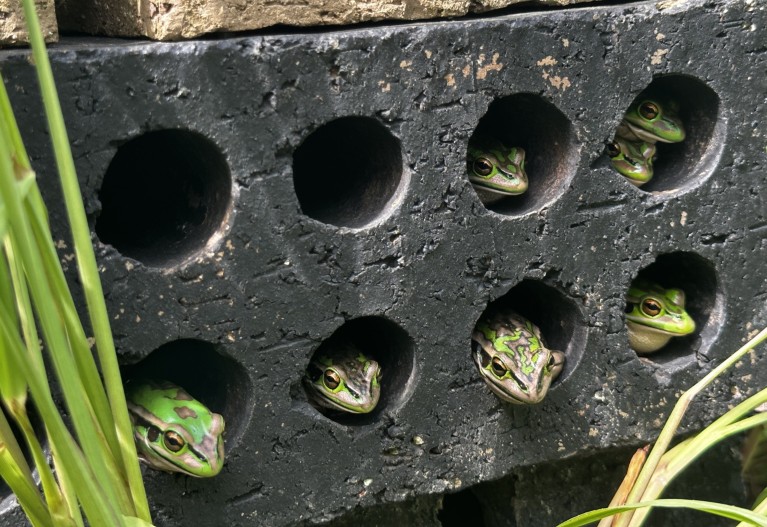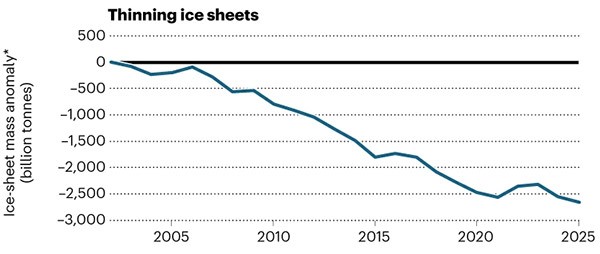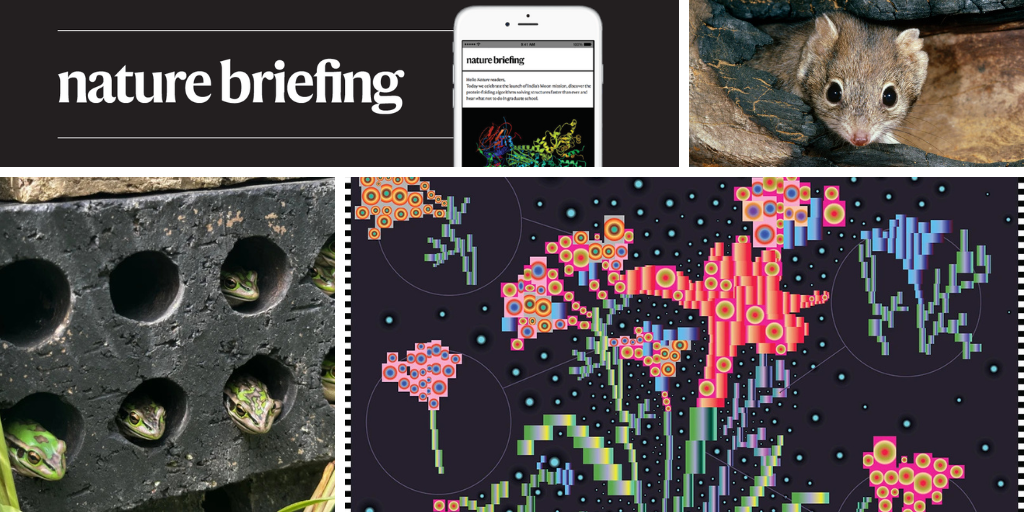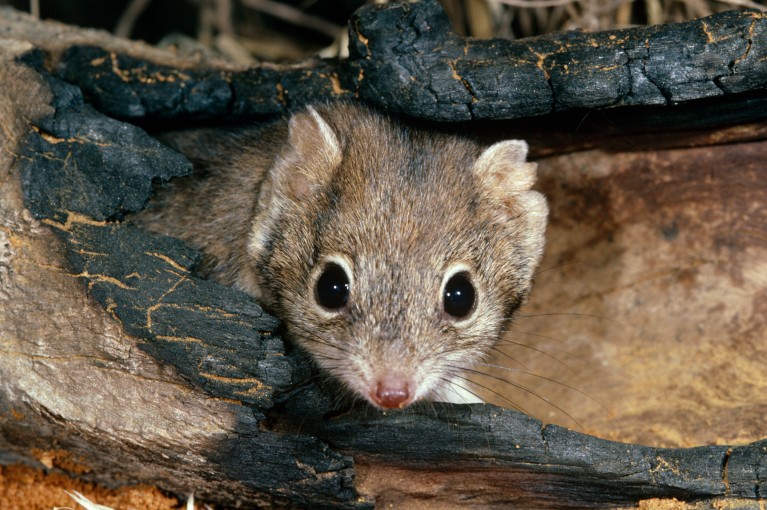You have full access to this article via your institution.
Hello Nature readers, would you like to get this Briefing in your inbox free every day? Sign up here.
News
Astronomers have used the power of NASA’s James Webb Space Telescope to discover a tiny new moon orbiting Uranus. S/2025 U1 is just 10 kilometres or so across. The distant ice giant now has 29 known moons. “No other planet has as many small inner moons as Uranus,” says astronomer Matthew Tiscareno, who co-discovered the new body. “Their complex inter-relationships with the rings hint at a chaotic history that blurs the boundary between a ring system and a system of moons.”
On 8 August, a gunman reportedly motivated by distrust of COVID-19 vaccines attacked the US Centers for Disease Control and Prevention (CDC) headquarters, killing a police officer. Now, hundreds of current and former employees of the CDC and other health agencies are imploring Health and Human Services Secretary Robert F. Kennedy, Jr to stop “dismantling America’s public health infrastructure and endangering the nation’s health by repeatedly spreading inaccurate health information”. Kennedy visited the CDC campus and decried the violence, but staffers say he should go further to “affirm CDC’s scientific integrity” and disavow misinformation.
Reference: Open letter
Features & opinion

Safe and snug: frogs kept warm in brick ‘saunas’ are able to ward off a deadly fungal infection.Credit: Anthony Waddle
Conservation biologist Anthony Waddle and his team discovered that frogs who take a ‘mini sauna’ in sun-warmed bricks can develop resistance to chytridiomycosis, a fungal disease that has driven at least 90 amphibian species to extinction. The work nabbed him the 2025 Future for Nature award. Now helping citizen scientists to roll out the simple and cheap solution more widely, Waddle says that his “unconventional entrepreneurial spirit” is the secret to his success.
Get the expert view from biologists Brian Gratwicke and Anna Savage in the Nature News & Views article (6 min read, from 2024, Nature paywall)Reference: Nature paper
“A significant portion of LLM-generated research ideas appear novel on the surface but are actually skilfully plagiarized,” wrote computer scientists Tarun Gupta and Danish Pruthi. They had spotted a methodology similar to their own in a paper generated by The AI Scientist, an artificial intelligence (AI) tool that aims to show how such systems could generate original scientific research. The example raises the question whether systems that rely on remixing and interpolating the text they’re trained on are skirting too close to ‘idea plagiarism’.
Sudden shifts that turn science on its head don’t happen very often, argues science writer Charles Mann — except in two cases. One is when a field is young, such as when Louis Pasteur helped launch the modern discipline of microbiology by overturning the theory that fermentation was a chemical reaction. The other is when politics takes over, such as when the debate over breast-cancer screening for women under 40 caused recommendations to flip several times in the United States. “The glare of publicity transformed a slow but fairly typical research debate into a huge controversy culminating in a big 180,” writes Mann.
Scientific American | 22 min read
Infographic of the week

Far from being a remote, isolated continent, Antarctica is integral to Earth’s climate and life-support systems, write six researchers — not least because its vast ice sheet stores more than 90% of the planet’s surface fresh water. “Loss of ice could contribute more than 60 centimetres to sea-level rise by the end of this century and will disrupt the Southern Ocean’s freshwater balance, circulation and mixing — signs of which are already evident in some areas,” they write. “Before this crucial reservoir of ice is lost, transforming the planet forever, it is essential that policymakers and others recognize Antarctica’s extraordinary economic value and seek to protect it.” (Nature | 12 min read) (Source: https://go.nature.com/4JPPG5G)
Today I’m gasping in awe at the achievement of Vitomir Maričić, a freediver who held his breath for a record-breaking 29 minutes and 3 seconds. Maričić inhaled pure oxygen for 10 minutes before the attempt.
Help breathe new life into the newsletter by sending me your feedback — your e-mails are always welcome at [email protected].
Thanks for reading,
Flora Graham, senior editor, Nature Briefing
• Nature Briefing: Careers — insights, advice and award-winning journalism to help you optimize your working life
• Nature Briefing: Microbiology — the most abundant living entities on our planet — microorganisms — and the role they play in health, the environment and food systems
• Nature Briefing: Anthropocene — climate change, biodiversity, sustainability and geoengineering
• Nature Briefing: AI & Robotics — 100% written by humans, of course
• Nature Briefing: Cancer — a weekly newsletter written with cancer researchers in mind
• Nature Briefing: Translational Research — covers biotechnology, drug discovery and pharma



